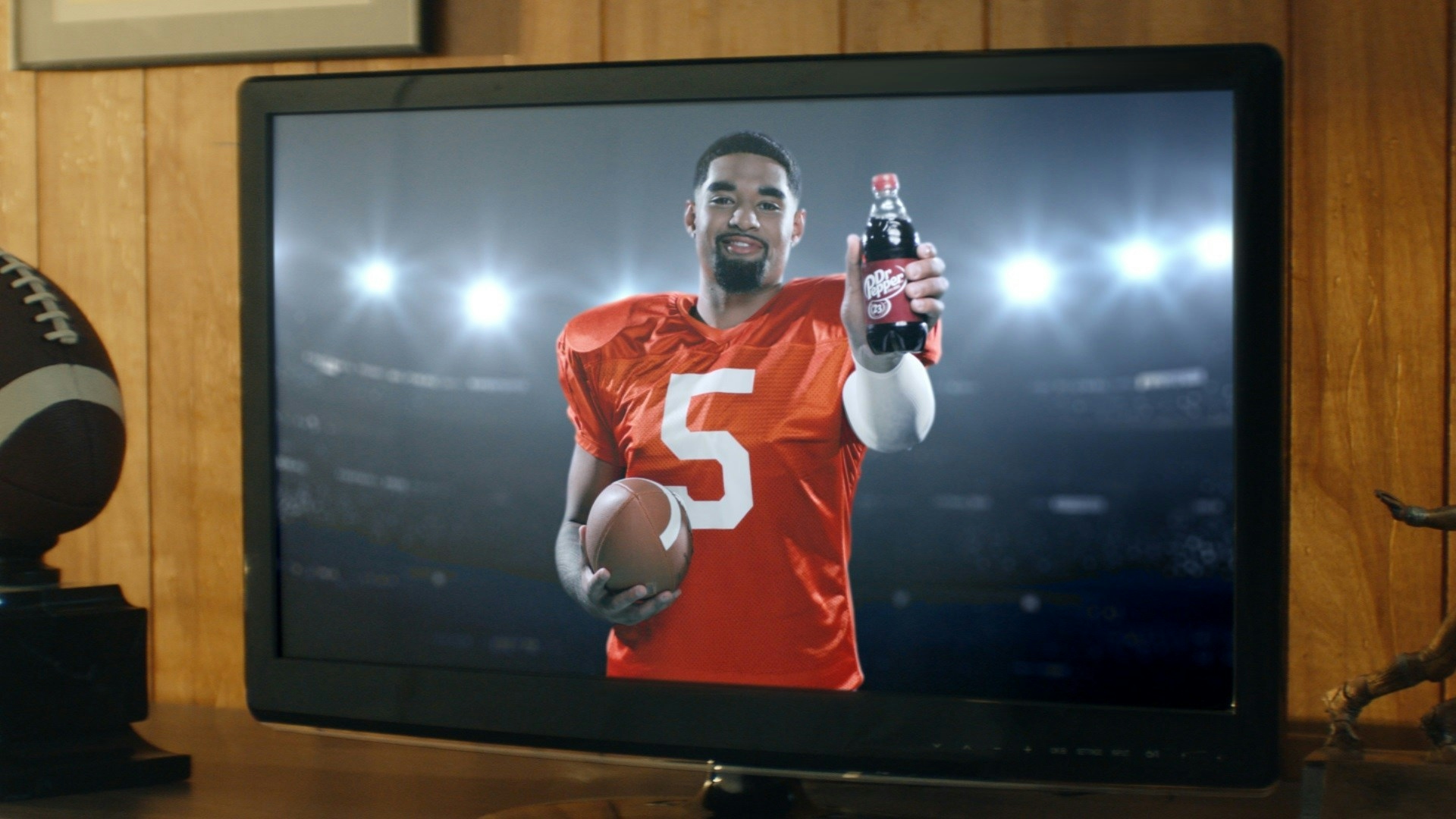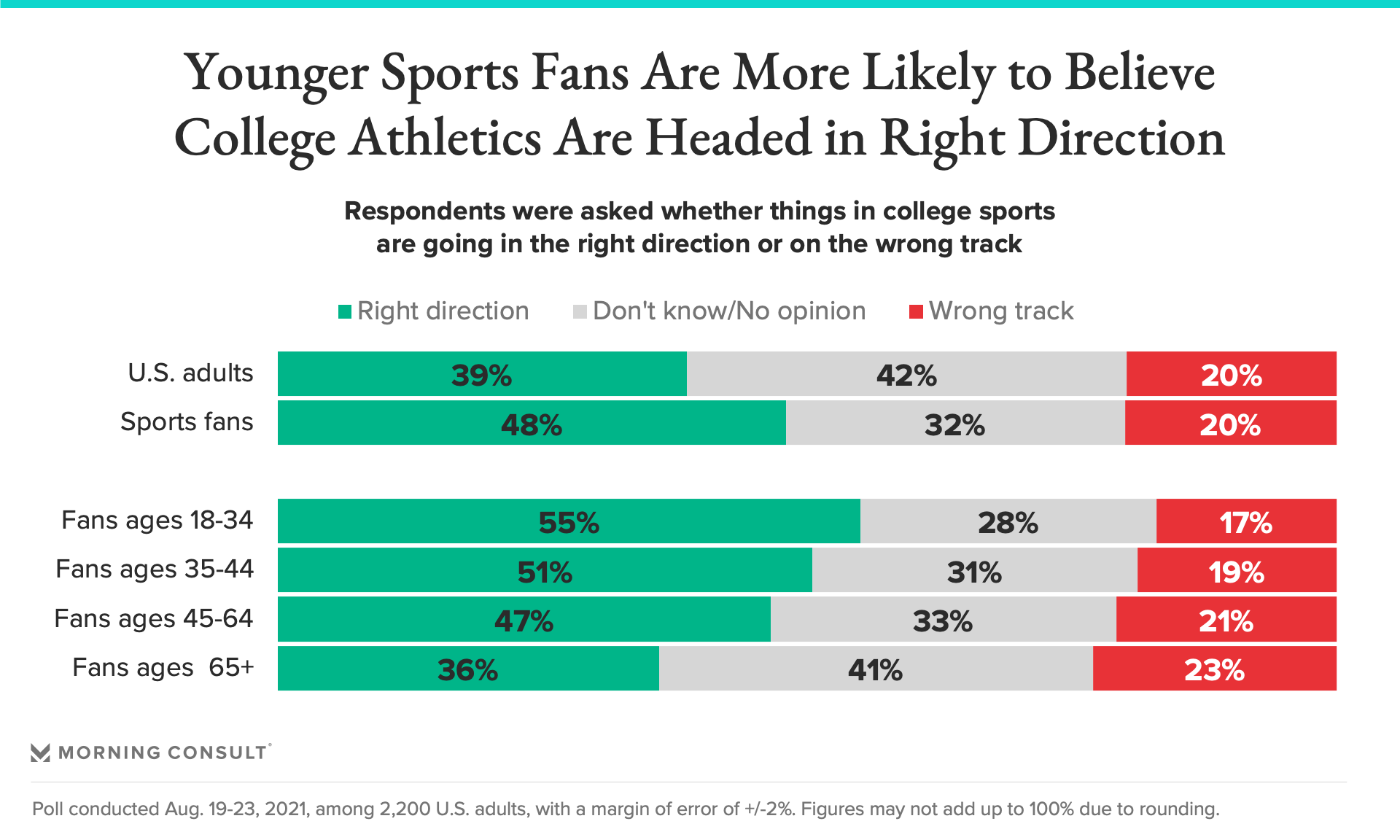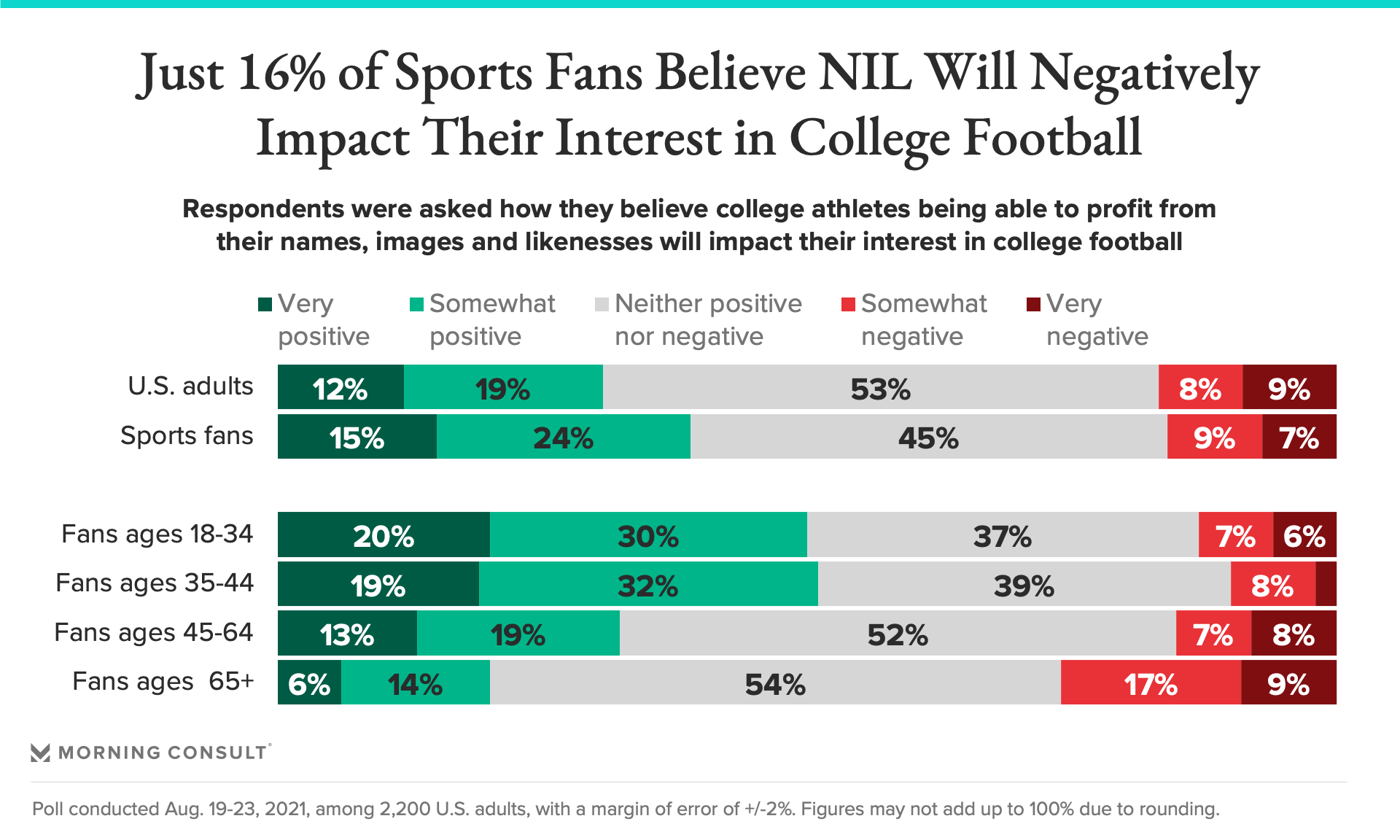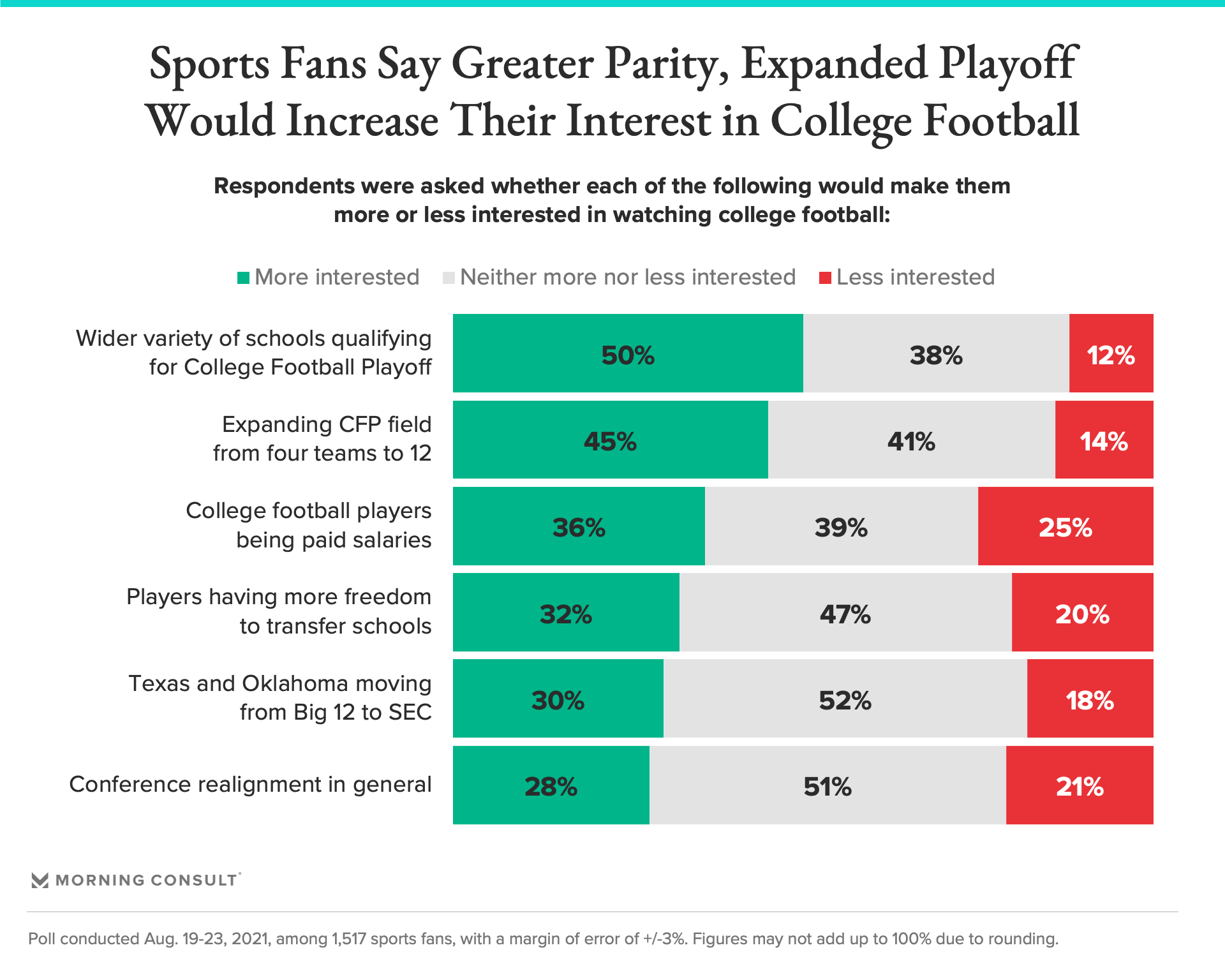Despite Long-Held Concerns About Commercialization, Fans Are Happy With the Direction of College Sports

Key Takeaways
More than half of sports fans ages 18-44 said college sports are headed in the right direction, compared to 36% of fans ages 65 and older.
45% of sports fans said they’d be more interested in college football if the College Football Playoff field were expanded from four teams to 12.
College athletic administrators have long expressed concern that the perceived commercialization of college sports could turn fans off, but polling conducted ahead of the 2021 college football season indicates the opposite is true.
In a Morning Consult poll conducted Aug. 19-23, 48 percent of adult sports fans said they believe college sports are headed in the right direction. Just 1 in 5 sports fans said college sports are on the wrong track.
Younger sports fans were more likely than their older peers to express optimism about the direction of college sports, with 55 percent of fans ages 18-34 and 51 percent of fans ages 35-44 saying college sports are progressing in the right direction. Among sports fans ages 65 and older, just 36 percent said college athletics are evolving positively.

The 2021 college football season, which begins Saturday, will be the first since student athletes gained the right to monetize their names, images and likenesses. It also comes with the sport seemingly on the verge of more revenue-driven conference realignment.
In efforts to preserve the NCAA’s long-standing model of amateurism, administrators have argued that student athletes receiving financial benefits beyond an academic scholarship could negatively impact the public's interest in college sports. According to the survey, however, only a small share of U.S. sports fans anticipates their interest in college football waning as a result of players being allowed to profit.

Of the 1,517 sports fans surveyed, 16 percent said they anticipate their interest in college football being negatively impacted by the new name, image and likeness policy. Forty-five percent of sports fans said it would have no impact on their interest in college football, while 39 percent of fans said it would positively impact their interest in the sport. The poll’s margin of error among sports fans is 3 percentage points.
About 1 in 4 sports fans ages 65 and older (26 percent) said the policy change would negatively impact their interest in college football, the largest share of any age cohort. By comparison, 10 percent of fans ages 35-44, 13 percent of fans ages 18-34 and 15 percent of fans ages 45-64 said their interest in the sport would likely decline as a result of college athletes being allowed to cash in via endorsement deals and other financial opportunities.

Fans were also asked about how a variety of other potential changes to the college football landscape might impact their interest in the sport. None of those developments, ranging from conference realignment to salaries for athletes, appear likely to alienate a large share of sports fans.
The most popular possible change involved greater parity in a sport that has been dominated by a handful of blue-blood programs such as Alabama, Clemson and Ohio State since the inception of the College Football Playoff in 2014. Half of sports fans said they would be more interested in college football if a wider variety of schools had a chance to qualify for the CFP as it is currently constituted.
In addition, 45 percent of sports fans said they’d be more interested if the postseason field is expanded from four teams to 12, a proposal that is under consideration by the NCAA — but that the ACC, Big Ten and Pac-12 are reportedly intent on delaying until the expiration of ESPN’s TV rights deal for the event in 2026.
Conference realignment proved to be the most polarizing potential shift, with 28 percent of fans saying schools moving between leagues would increase their interest in the sport and 21 percent saying it would decrease it.
Alex Silverman previously worked at Morning Consult as a reporter covering the business of sports.
Related content

As Yoon Visits White House, Public Opinion Headwinds Are Swirling at Home

The Salience of Abortion Rights, Which Helped Democrats Mightily in 2022, Has Started to Fade
